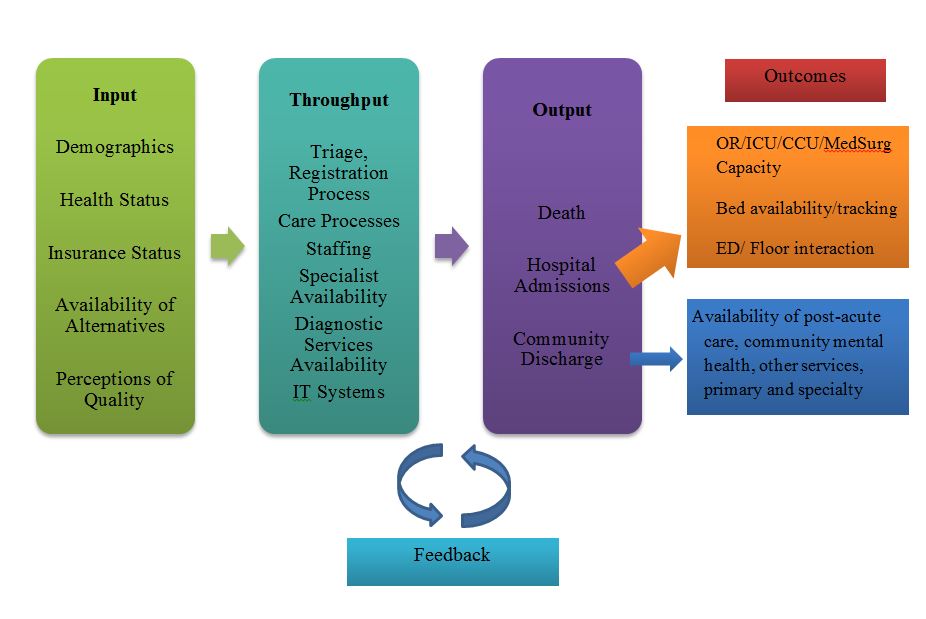The University of Washington Medical Center in Seattle is ranked #1 for hospitals in the state of Washington (Clements, 2020). UW Medical Center – Montlake has certified emergency physicians and nurses ready to provide high-quality emergency care to anyone in need around the clock. The emergency department is maximally equipped to handle the most complicated and urgent conditions and diseases. The staff provides specialized care in areas such as oncology, cardiology, stroke, transplantation, orthopedics, as well as high-risk pregnancy, including the neonatal intensive care unit.
System thinking assumes the presentation of a medical facility as a holistic entity, which consists of interacting pieces, each of which endows to the characteristics of the whole. The representation of a medical organization as a complex system, which itself is a subsystem, in such large system as healthcare, allows one to better understand various aspects of its functioning in the market and identify key points that affect its activities. This makes it possible to consider many problems in a comprehensive manner, which helps to optimize the management process. Leslie et al. (2018) affirm that medical organizations have input (patients entering the facility), throughput (patients receiving care), output (patients leaving the facility), outcomes, and feedback. Thus, the Emergency Department at UW Medical Center system is shown in the diagram.

Thus, the presented model is subject to consideration: the output is the provision of medical services, and the input is resources and information. The application of a systematic approach begins after the formation of the output parameters. This includes aspects such as what service to provide, with what quality indicators, the cost of providing it, in what time frame, and who will be the consumer of the service. According to Leslie et al. (2018), the medical service must be competitive. Then it is necessary to determine the input parameters: what resources and information are needed. These include demographics, health status, insurance status, availability of alternatives, and perceptions of quality. The movement from input to output occurs through the throughput, which includes triage, registration process, care processes, staffing, specialist availability, diagnostic services availability, and IT systems. Feedback is a communication channel from service recipients to service providers. In case of changes in user requirements for medical services, market parameters, and the emergence of new technologies, the system reacts to these changes, and appropriate changes are made to the parameters of the organization’s functioning.
The management of a health care institution, which is a complex system, should be based on the principles of systems theory that are common to them. The use of systems thinking in the management of a healthcare institution allows for improving management processes, which positively affects the development of the healthcare system as a whole. Leslie et al. (2018) note that the greater the degree of quality of the components of the management system for the provision of medical services, the higher the probability of obtaining qualitative medical care. For example, if an emergency patient receives the maximum range of quality services in the minimum time, positive feedback will be received with a high degree of probability. This, in turn, will help improve the rating positions of the medical organization. Thus, each element of the system is inextricably linked with each other, and this connection has both positive and negative consequences for the image of the organization. Therefore, a systematic approach is an essential condition for improving the efficiency of healthcare management.
References
Clements, B. (2020). UW Medical Center’s care again is ranked No. 1 in state. UW Medicine. Web.
Leslie, H. H., Hirschhorn, L. R., Marchant, T., Doubova, S. V., Gureje, O., & Kruk, M. E. (2018). Health systems thinking: A new generation of research to improve healthcare quality. PLoS Medicine, 15(10), e1002682.